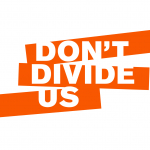Book review: ‘Nice Racism: How progressive white people perpetuate racial harm’ by Robin DiAngelo
Robin DiAngelo achieved widespread fame with her book White Fragility, delivering the ideas of Critical Race Theory to an audience of progressives. Here, Graeme Kemp reviews her follow-up, which carries on the same, Catch-22 outlook: if you’re white, you’re a racist – and if you disagree, you’re a racist in denial.
Robin DiAngelo has followed up her previous book White Fragility with a new book, Nice Racism, published by Penguin Books. The target audience of ‘Nice Racism’ is white readers who are tempted to think that racism is only perpetuated by open racists and extremists. DiAngelo’s mission is to explain that even white progressives and liberal folk can cause racial damage to people who are Black. The book is written in a rather hectoring, stilted writing style, displaying a rather insistent focus on discovering racist ‘sin’ in a variety of everyday situations, a hallmark of Critical Race Theory.
She is blunt about the threat she sees:
‘Black people do interact with white progressives. We are the ones – with a smile on our faces – who undermine Black people daily in ways both harder to identify and easier to deny.” (Page 6).
While racism, thus defined (or not) is difficult to identify, DiAngelo finds it very easy to identify and hunt down any progressives not fully signed up to her version of anti-racism. Readers may imagine that they are free of racism, but they are not, she claims. Indeed, Di Angelo reminds any white person reading her book that he or she may still be manifesting aversive racism. Believing that one is free of racist intent inhibits further progress. Aversive racism allows white progressives to act out racism while still having a positive self-image.
The solution, she says, is to admit that race is central to all our lives. One of the techniques that DiAngelo uses with other people who are also white, is to ‘ask white people how their race has shaped their lives’ adding that ‘white space is racialized space, and every moment that I spend in white space reinforces in me a particular (and limited) worldview and experience’. (Page 9)
Like me, readers may be baffled as to what DiAngelo means by ‘white space’, may remain sceptical about whether the term is even credible, or may wonder whether worldviews are shaped by more things than the spaces we inhabit. This alleged limitation is hardly surprising, laments DiAngelo, as white people control almost every institution in society – so what would you expect?
Her book pointedly asks the reader to reflect on his or her ‘fallen’ state by asking questions such as: if you really are such a nice progressive, did your parents encourage you to visit areas where black people lived and build relationships? Did your parents have a ‘significant’ (Page 12) number of Black friends? If you showed DiAngelo your wedding album, would it reveal how mixed your circle of friends is?
The above list of intrusive, strange and ultimately irrelevant personal questions is frankly laughable and silly, or it would be were such beliefs not being introduced to schools in the US and increasingly in the UK.
The second chapter, entitled ‘Why It’s OK to generalize about White People’ continues the above themes, claiming that notions of individualism underpin this nice racism:
‘the ideology of individualism… can be conceptualized as a set of ideas, words, symbols and metaphors – a narrative – that creates, communicates, reproduces and reinforces the concept that we are all unique and that our group memberships (such as our race, class or gender) are not important or relevant to our opportunities’. (Page 19)
Hers is a superficial definition of individualism, which does not deny the importance of specificities of class, race or sex, but simply believes we have the capability – through our reason – to decide on the significance we wish to attribute to differences and commonalities. Individual and group are terms of theoretical analysis, in life the two are inseparable.
Empirically, many have presented detailed, factual information to prove that individuals can overcome disadvantages that may affect group membership. Many ethnic minorities in Britain have become gradually more successful – in education and employment, for instance – despite any lingering racist stereotypes or even economic and other disadvantages.
For DiAngelo, the individualist mentality is deeply embedded in Western cultures, and she claims it is a vital force in maintaining white supremacy. White people do have a shared experience as white people – and she believes that we must maintain our focus at group level, despite ‘white insistence on individualism’. (Page 23) However, I’m pretty sure that many non-white, formerly colonised nations quite like individualism, too, as they celebrate past heroes of liberation movements. But why let historical fact get in the way of a profitable theory…
The implication is clear: all white people are therefore implicated in racism, despite what an individual may actually have said or done in his or her life. Indeed, one group of pipe fitters, at a company DiAngelo was working with, did not escape her critical gaze. Focusing on one complaining participant, DiAngelo says:
‘The pipe fitter who registered his complaint had no problem recognizing the class hierarchy, but he refused to recognize his own racial advantage.’ (Page 26)
This is a particularly galling and patronising comment that shows DiAngelo’ privilege is that of an over-privileged aristocrat from history rather than stemming from her skin colour. A pipe-fitter in America earns between $50,500 and $74,000 a year. DiAngelo charges in the region of $14,000 per speech.
Her examples of unacceptable behaviour by white people are bizarre. Take the examples she gives, below:
‘Slipping into a southern accent or other caricature when talking to or about Black people’ and ‘Asking for more evidence or offering an alternative explanation when a BIPOC person shares their lived experience of racism.’ (Page 45). (BIPOC stands for Black, Indigenous, People of Colour.)
Even allowing for an American context for the first statement above, this really sounds absurd and daft. Examples of personal and interpersonal awkward or clunky expressions are not, per se, racism. And to suggest that asking questions of a BIPOC person who claims racism is itself racist is highly patronising. So, no room for disagreement or even discussion, then? And are BIPOC people to be infantalised by exemption from the questions we would normally ask of any white person claiming a grievance?
Occasionally, DiAngelo makes a decent point about some liberal progressives and how they can idealise other cultures that should not always be seen as wonderfully spiritual:
‘When we idealize a group of people, we make them monolithic. Indigenous cultures are varied, and they change and evolve over time as all cultures do, but romanticizing a fixed and limited idea of who they are essentializes and denies agency.’ (Page 115)
This is actually a valid, if obvious, point about culture. She can get it right, sometimes but fails to see how her own ideas infantalise black people and demonise white people. The tone of the book, intolerant of any dissent or heresy, does not help DiAngelo’s arguments. The logic of her views will divide people, rather than unite.
Anti-racism deserves better than this.

Graeme Kemp is a former civil servant and teacher who has worked in different roles in education from the south coast of England to Scotland. As well as Don’t Divide Us, he has contributed reviews to The Equiano Project and the Bournbrook Magazine. He is proud to currently live in the Midlands.


